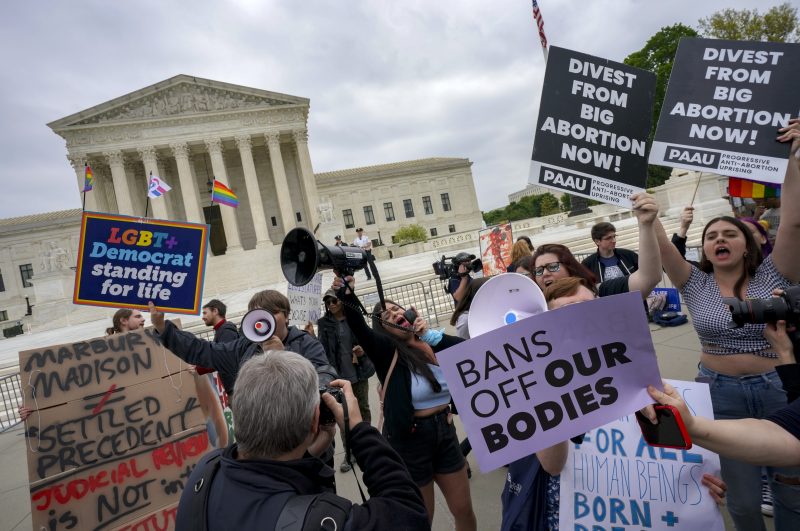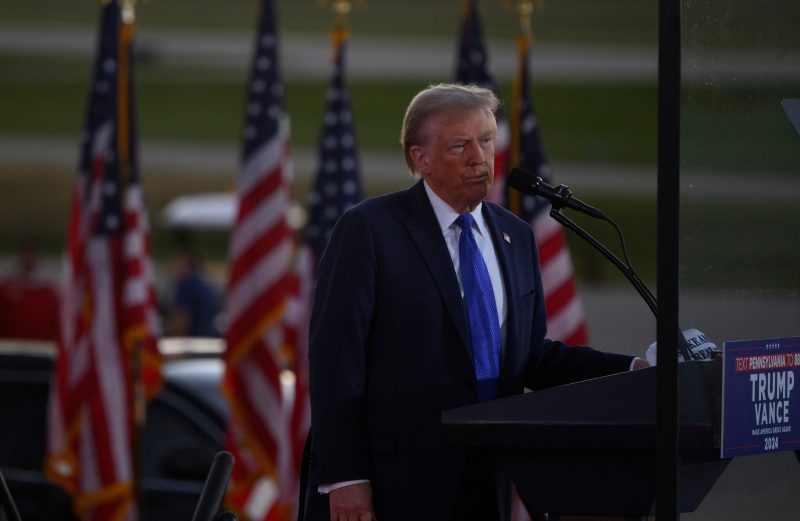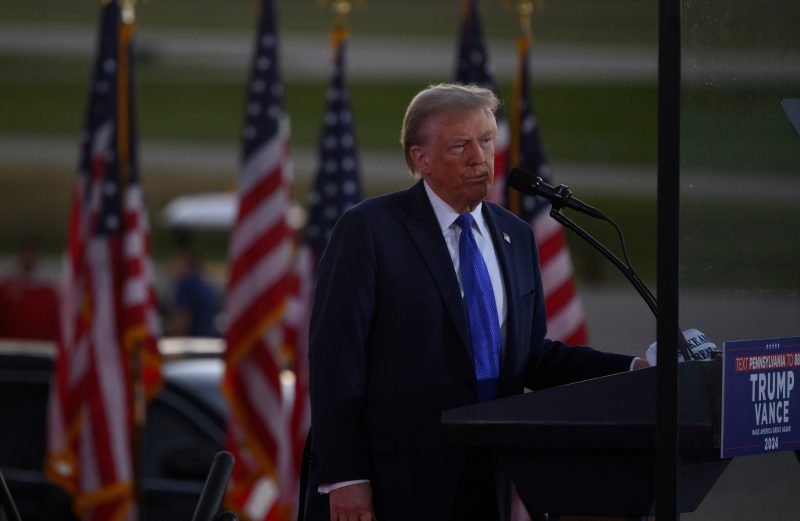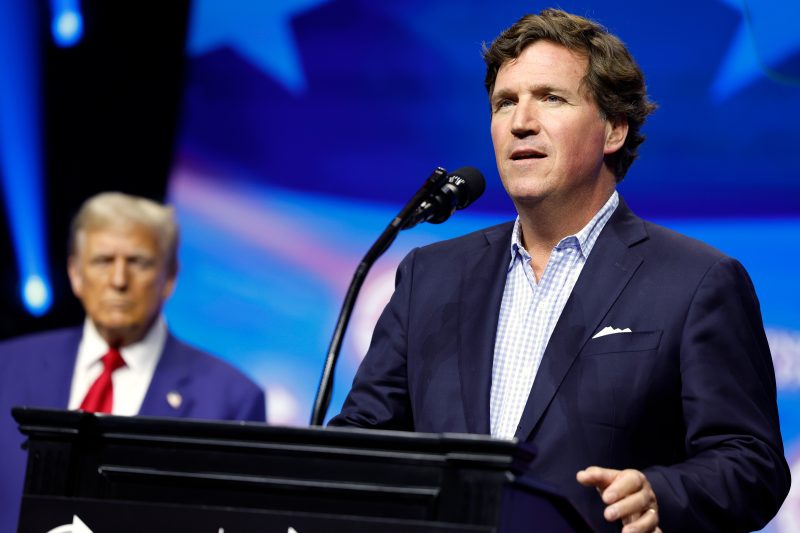
Republicans flee from abortion restrictions in final weeks of campaign
In the final stretch before Election Day, Republicans are ramping up efforts to distance themselves from the restrictive abortion positions that have defined their party since the 2022 overturning of Roe v. Wade — scrambling to soften, or appear to soften, their hard line positions.
The group includes everyone from former president Donald Trump and his running mate, Ohio Sen. JD Vance, to House members and gubernatorial candidates, and comes as nearly two-thirds of Americans say they believe abortion should be legal in all or most cases.
In Tuesday evening’s vice-presidential debate, Vance — who during his 2022 Senate run described himself as “100 percent pro-life” and ran on a platform promising to “end abortion” — said he and Trump were working to earn “the American people’s trust back on this issue” and implied that he supported the decision by an unnamed friend in an abusive relationship to terminate her pregnancy.
“I know she’s watching tonight, and I love you,” he said.
That same evening, Trump — who regularly claims credit for overturning Roe — wrote in an all-caps post on social media that he would veto a federal abortion ban, writing “it is up to the states to decide based on the will of their voters (the will of the people!).”
A small group of House Republicans and Republican candidates have also shifted their tone on the issue and are espousing a surprising stance — support for abortion rights — while not necessarily backing legal protections proposed by Democrats. In one example, Rep. John Duarte (R-Calif.), recently described himself to The Washington Post as “pro-choice,” despite earning positive ratings from antiabortion groups because of his voting record.
And several Republican gubernatorial candidates have released misleading ads that try to gloss over their past support for abortion restrictions and instead cast themselves as more moderate on the issue. Lt. Gov. Mark Robinson (R-N.C.) released a new ad claiming he supports the state’s current law — which bans nearly all abortions after 12 weeks — because of his and his wife’s “very difficult decision” three decades ago to have an abortion.
“When I’m governor, mothers in need will be supported,” he says in the ad.
But his previous statements have gone much further than the state’s existing law, including saying he preferred “a six-week bill” — which would ban abortion before most women know they’re pregnant — and describing abortion as “killing the child because you weren’t responsible enough to keep your skirt down.”
“Republicans are seeing the polls, and they know that their hostility to abortion is dragging them down, they know that the public is not enjoying the post Roe v. Wade world, so they are desperately scrambling to reverse those trends by lying about their stance,” said Emily Martin, chief program officer at the National Women’s Law Center Action Fund, an organization devoted to gender justice in law, policy and culture. “But it is a little shocking that there is such a shameless attempt to rewrite recent history.”
Though portions of the Republican base staunchly oppose reproductive rights, polls show that a majority of the country favors them. An August Washington Post-ABC News poll found that 62 percent of Americans opposed the overturning of Roe, while 35 percent supported it. A Pew Research Center poll from earlier this year found that 63 percent of Americans thought abortion should be legal in all or most cases. And two recent Fox News polls show 50 percent of Arizona Republicans plan to vote for their state’s abortion rights amendment in November, while 54 percent of Nevada Republicans will do the same in their state.
Since the Supreme Court overturned Roe two summers ago, the issue of abortion has become a political albatross for Republicans. Democrats, meanwhile, have highlighted the topic to their electoral benefit, including in the 2022 midterms, when an emphasis on abortion rights helped stave off an expected “red wave” of overwhelming Republican victories in the House and Senate.
This fall, abortion initiatives on the ballot in 10 states — including the critical western battlegrounds of Arizona and Nevada — seem certain to keep the issue in the political spotlight.
David Winston, a Republican strategist, said that before Roe was overturned, the discussion on abortion was a national one, but now “rather than having a singular conversation, all of a sudden we’re having 50 of them, and what that’s done is it has really structurally changed everybody’s interactions with each other.”
Politicians, Winston said, are trying to work through “where is their state at, what’s their role in this conversation, how do they deal with other people in their conference.”
“So you’re watching a learning process in place,” he concluded.
In an unexpected but timely twist, former first lady Melania Trump on Thursday released a black-and-white video — part of promotion for an eponymously titled new memoir — in which she offered up a personal view on abortion at odds with that of her husband and the party he leads.
“Individual freedom is a fundamental principle that I safeguard,” she says in the video. “Without a doubt, there is no room for compromise when it comes to this essential right that all women possess from birth — individual freedom. What does ‘my body, my choice’ really mean?”
Excerpts from her book, which the Guardian reported before her video, go even further. “A woman’s fundamental right of individual liberty, to her own life, grants her the authority to terminate her pregnancy if she wishes,” Melania writes in her book, according to the British paper. “Restricting a woman’s right to choose whether to terminate an unwanted pregnancy is the same as denying her control over her own body. I have carried this belief with me throughout my entire adult life.”
Trump, meanwhile, ran for president in 2016 describing himself as “pro-life” and promising to appoint the sorts of conservative justices to the Supreme Court who would overturn Roe. He kept his promise, fundamentally altering the court’s makeup with three new judges. But he has struggled with the political fallout of his actions, repeatedly vacillating between boasting about the overturning of the landmark decision (which animates his political base) and offering a more moderate stance (which appeals to the mainstream and independent voters he will also need to propel him to victory).
In a single 24-hour period in August, Trump first suggested that he would support an amendment in his home state of Florida that would protect abortion rights before — amid backlash — reversing himself to say he would vote against the amendment after all, calling it too “radical.” The former president also recently claimed that his administration would be “great for women and their reproductive rights.”
Republican House candidate Matt Gunderson, a business executive running in a California swing district, released an ad last month in which he calls himself “pro-choice.”
“I believe abortion should be safe, legal and rare,” Gunderson says in the ad, looking directly into the camera. “I don’t want politicians dictating health care for my daughters. You might disagree. And that’s okay.”
In addition to North Carolina, the Republican gubernatorial candidates in several other key battleground states are also pushing back on the idea that they previously supported significant abortion restrictions. In New Hampshire, former Republican senator Kelly Ayotte released an ad claiming that her opponents’ attacks on some of her past abortion positions — including her 2015 vote on a national 20-week abortion ban and her calls for the overturning of Roe — were unfairly “politicizing abortion to win votes.”
And in Washington State, Republican gubernatorial candidate and former House member Dave Reichert released a direct-to-camera ad, saying he would not change his state’s abortion laws and stating, “I do not believe any politician, regardless of personal belief, has the right to make that decision for any woman.”
However, in Congress, Reichert supported a national 20-week abortion ban, repeatedly voted to ban federal funding for Planned Parenthood and had an 83 percent approval rating from the National Right to Life Committee, a leading antiabortion organization.
“Republicans running for governor like Mark Robinson, Kelly Ayotte, and Dave Reichert know their antiabortion records are too extreme and unpopular to run on, so they are running from them,” said Emma O’Brien, a spokeswoman for the Democratic Governors Association, in an email statement. “Unfortunately for these Republicans, we have the receipts, and will make sure that voters in each of these states remember every time they voted for an abortion ban or outlined their plans to put themselves in front of women and their doctors.”
In addition to highlighting Republican turnabouts, Democrats also plan to leverage the abortion initiatives on ballots across the nation to help keep the issue salient in the national conscience.
“They’re to argue that they are moderating because they’ve left it up to states,” said Christina Reynolds, senior vice president of communications for Emily’s List, a national group that backs female Democrats who support abortion rights. “And to that I would say: ‘Please go look at what these states are doing.’ This is not a change in agenda — this is just lying to voters.



